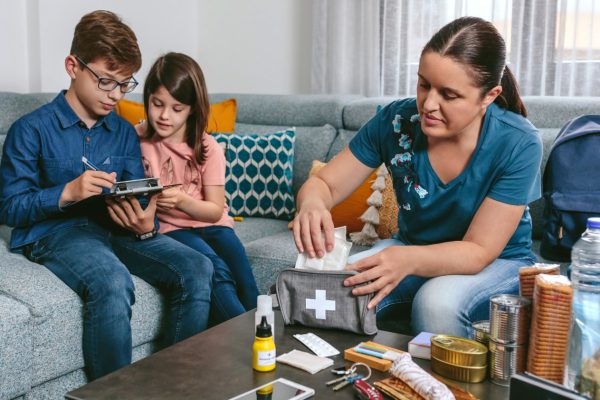
Top tips: how to blitz your NDIS review
By Sam Paior, The Growing Space
There’s nothing quite like the stomach knotting stress of knowing your child’s NDIS plan is due for review.
Will she get a good plan? Will it be cut? Will we get it before the old one expires? What happens to the equipment we haven’t got yet? These questions can flood (and hurt) your brain and the truth is, that no- one can predict with any accuracy the right answers for your little one!
But, you can improve your chances of getting a decent plan that meets your child’s needs by following these five steps.
1. GOALS:
Work hard to make sure you have covered everything in your child’s goals. If your child needs a support or service that isn’t covered by the goals, you’re unlikely to get the needed funding. The NDIS system has room for up to seven goals, but usually three to five should be enough. Key words you might want to include are “increasing independence”, “building skills”, “making friends” etc. Always provide a copy of your child’s goals IN WRITING to your LAC or Planner. If there is something slightly unusual you want funded in the plan, make dead sure you have a specific goal that covers that need. E.g: “I want the equipment and supports I need to be able to cook nutritious meals independently and safely without help.” Might be a good goal for a young adult wanting an all-in-one cooking device as they prepare to move out of home.
2. REPORTS
Reports from your child’s therapists can be key to providing the evidence needed for ongoing funding, but if those reports are 20 pages long, or don’t include useful information about the progress your child made over the past plan, then they’re likely to be a waste of your energy and money. Direct your therapists to check out this awesome guide from VALID which gives therapists a guide on how to write a report that will help www.valid.org.au/10-steps-excellent-ndis-therapy-reports. Your therapy reports should not focus on what the therapist did, as much as what were the goals achieved. Your reports will need to tread a fine line between reporting progress (if there’s no progress made, why would NDIS keep funding that therapy?) and outlining the need for further funding.
3. ASSISTIVE TECHNOLOGY:
Cheaper, low risk items, like a cup holder on a wheelchair, a time timer, moulded spoon for an older child, or other assistive technology can usually be purchased from core/ consumable funding. If your child requires these smaller items, bring a list to your review meeting (even better if it’s in an email from your OT!) and ask for flexible Assistive Technology funding. And if you need larger, more specialised equipment, like a new wheelchair or stander, make sure to bring those recommendations, prescriptions (on an NDIS form!) and quotes from your allied health professional to your planning meeting to save delays.
4. MONEY MANAGEMENT:
Make sure you know exactly what money management you want in your new plan, and make sure to ask for it, IN WRITING. Self-management will always give you the greatest flexibility in how you can use the funds, but plan management can work well for many too. Agency management is usually too restrictive for most families. Plan management offers some flexibilities, but you won’t be able to use services that charge above the rates in the NDIS Price Guide.
5. CARER STATEMENT:
Always bring along a written carer statement that outlines your abilities and inabilities to meet your child’s disability support needs. If you are caring for more than one person, make sure you outline this, as well as your own disability or significant health concerns. Keep it to less than a page – half a page is usually best.
EXTRA TIPS FOR FAMILIES WITH YOUNG CHILDREN
1. SUPPORT WORKERS FOR YOUNG CHILDREN:
Children under the age of seven generally do not receive “Core” supports for support worker assistance, but there are exceptions for those with extraordinary support needs. The NDIS works on the assumption that every young child needs parental support 24/7, so young children with disability should also be cared for by parents.
2. AFTER-SCHOOL AND VACATION CARE:
NDIS generally won’t fund these for primary school aged children so that parents can work, as all primary aged kids need supervision after school. If your child has been excluded from attending your local after-school care, make sure you bring a letter denying them access, and proving your need for extra supports.
My last tip is to say “thank you” to your planner/LAC. Sometimes it can be tough to feel thankful at the end of a meeting where you feel utterly exposed and sometimes judged, but I always suggest you thank your planner or LAC at the end of your planning meeting. Find something (or many things) that they did well, and let them know. The NDIS is a pretty new, huge, beast of a program, and nearly everyone is pretty overwhelmed and overworked. Planners and LACs tend to only hear complaints, so if you have a genuine compliment to share, do it.
For more information about making the most of your NDIS, check out The Growing Space’s ever growing library of free and subscription based resources written for carers and people with disability at www.thegrowingspace.com.au/library
Subscriptions to this service can be claimed from Self and Plan Managed NDIS plans from Core or CB support budgets.







